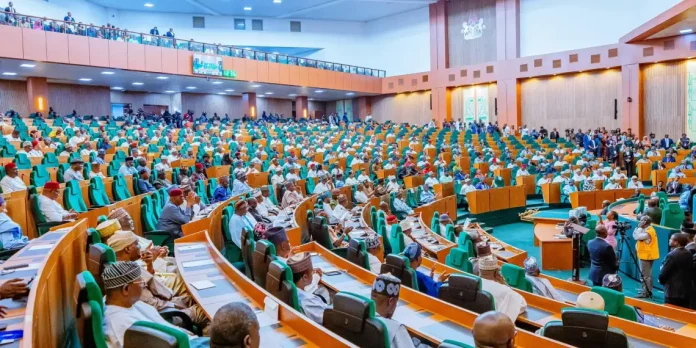The House of Representatives, through its Committee on Nutrition and Food Security, has commenced an investigation into the disbursement of the N1.12 trillion earmarked for the Anchor Borrowers Programme (ABP).
The probe also covered the disbursement of N215 billion by Nigeria Incentive-Based Risk Sharing System for Agricultural Lending (NIRSAL) for agribusinesses and Bank of Industry (BOI)’s payment of N3 billion to 22,120 smallholder farmers through the Agriculture Value Chain Financing (AVCF) programme.
Speaking at the investigative hearing, Chairman of the Committee, Chike Okafor, expressed concern that out of the 24 participating financial institutions that disbursed the ABP funds, lawmakers have evidence of only nine.
Okafor said one of the key oversight mandates of the committee was to ensure the proper implementation of intervention programmes by relevant government agencies in food security and nutrition.
He said: “We are probing how the Central Bank of Nigeria (CBN), through the ABP, disbursed about N1.12 trillion to 4.67 million farmers involved in maize, rice or wheat farming through 563 anchors. The CBN should note; that we are aware that you have about 24 Participating Financial Institutions (PFIs), through which you disburse these humongous amounts. I am also aware that you have written to 24 of them, but we have evidence of only nine. “Second point; we are probing how NIRSAL disbursed N215,066, 982,074.50 so far to facilitate agriculture and agribusinesses; and the BOI, how you disbursed N3 billion to 22,120 smallholder farmers through the agriculture value chain financing programme.”
According to him, the creation of the committee is a legislative response to join forces with the executive arm of government and other stakeholders to make Nigeria a food-secure and nourished society. A representative of NIRSAL Microfinance Bank, Charles Bassey, told the panel that insecurity was a major challenge to the successful implementation of the loan scheme under its supervision.
Bassey said that in trying to determine who was qualified to benefit from the intervention, NIRSAL paid attention very closely to laid down guidelines.
He explained: “It was based on those guidelines that we disbursed these funds. Some of the challenges that they have written about include insecurity”. A couple of them had pointed to the fact that after they had invested the funds in agricultural business, they were not able to go back to the farms because of banditry and herdsmen.
“These delayed their seasonal interventions and harvesting. Some also pointed to natural disasters such as flooding and drought, which affected them. A few of them actually asked for restructuring of the loan facility to allow them time to repay accordingly.”
Group Head, Agric Finance and Solid Minerals, Sterling Bank, Olushola Obikanye, said the bank had repatriated N113,490,756,332.54 to the CBN and that it was not owing under the scheme.
“The total fund repatriated to CBN, which is the cumulative of the undisbursed and disbursed funds, stood at N113,490,756,332.54 and it leaves Sterling Bank with an outstanding of zero naira, zero kobo that we are owing under this scheme,” he said.
THE GUARDIAN


